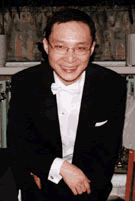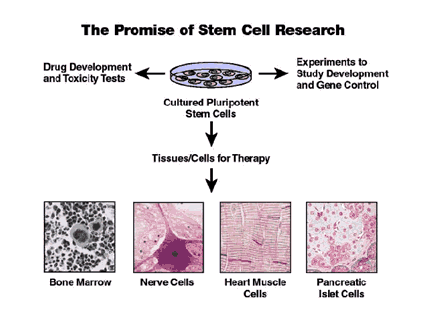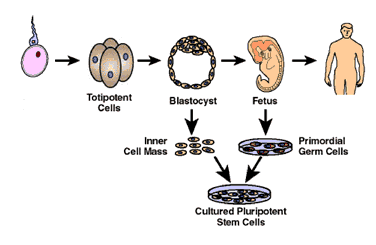
A STARLAB DISCUSSION: CLONING
While recording a programme of interviews, Kezhou Zhang and Jack Klaff began a discussion which became too involved for the needs of television.
We at Shebang provided the forum for them.
Dr. Kezhou Zhang is a medical doctor, who has joined Starlab in order to conduct explorations into what may broadly called cell therapy, a blanket term which includes studies of gene expression, tissue regeneration and cancer research. Klaff is Starlab’s Professor of the Public Understanding of Science.
The discussion took place at the same time as debates were being held, especially in the British parliament, on this very issue.
On this subject, Ms Anna Furse, mother of an IVF baby and a fertility expert, gave Shebang the analogy of
A KNIFE.
A knife can be used as a weapon. It can stab, cut, maim, hurt and kill.
A knife can also help us to cut, peel, chop, and prize open food that is essential for life
Thus it is with technology.
It has the potential to do harm or good.
But we don’t blame the knife when someone is stabbed.
And we should not blame technology when humans turn it to evil use.
Zhang: The most sensitive and controversial problem for the public and the media right now is the big concern about cloning - about cloning technology.
Klaff: Exactly. Well, you knew that was how I was going to begin.
Zhang: Yes. Surely opinions about this issue will be dependent upon each individual’s background. But from the medical point of view, there can be no doubt that we really must develop the technology further so that it can eventually be used for diverse treatments, including maybe tissue regeneration, cancer treatment and so on.
Klaff: I think people are tempted to have very unfair thoughts about cloning. I admit them myself. Many members of the lay public will no doubt be delighted for themselves when they can have faulty organs replaced. But somehow they also have negative reactions to this thought. Firstly the human body is not like a machine, it’s not a Trabant or even a Saab or a BMW, or at least they wouldn’t like it to be so mechanistic. And secondly – here comes the selfish bit – human beings want our diseases to be curable and to have substitutes for our own bad bits, but we are really concerned about society as a whole, and about the implications for society. It’s absurd and contradictory I know – because it seems as if we’re saying we want these advances for ourselves but not for others.
Zhang: I would like to say that the human body is like a machine; it is very like a biological machine. Each part of it works in a very sophisticated and co-ordinated way, which is probably beyond our understanding today.
Klaff: So you’re not the cliché, the Man from the East telling us about holism, then
Zhang: [Laughter] That’s outside of science, now I think. I believe actually what people are really worrying about is the cloning of an entire human being. But in reality most of the laboratories in universities or in the pharmaceutical industry are doing fundamental research to explore the mechanism of human development – for example which genes are switched on or off at certain points of development. And also in comparison with the development of malignancy in order to search or find out the target gene for putative method of cancer treatment. So what I want to say exactly is the scientists are more interested in knowing what is happening in human development instead of developing technology to clone the whole species, which to be honest is relatively simple to achieve.
Klaff: But hang on, you know that however simple it is to achieve and however busy the good guys may be, you know damn well that the sense of achievement a scientist will feel if he or she does clone a human being will be irresistible. It’s got nothing at all to do with lovely moral jobs like healing the sick and preventing suffering, it’s go t to do with achievement and curiosity, playing God, and the desire to do something dramatic and powerful just because it’s there to be done.
Zhang: You’re right. The fact is, after Dolly had been cloned scientist have been very successful in cloning mice, cows, and a monkey - if I remember it correctly. Humans are very close to these species in terms of evolution, and therefore will not be all that different from the technology used for cloning humans. So, yes, there may be some crazy guy who might be after a certain personal achievement but I would say there is no scientific merit in attempting such a thing, nor would there be any novelty in any way by its accomplishment. It’s all been done.
Klaff: The problem is that, however strong that argument may seem to you it doesn’t appear to be convincing to the general public. And even if there is little scientific kudos to be gained from cloning humans there are all those political, military, social and other possibilities – including the criminal ones - which people seem unable to get out of their minds, and what you are saying doesn’t seem to allay their fears or to reassure them at all.
Zhang: It’s not convincing.
Klaff: No. We still know that people are going to do this stuff. Somehow we know it because we know history and we know human nature.
Zhang: The technology is there, and it is quite mature already. If you really want to stop it is too late. It is well developed. I – and scientists like me – are using it to alleviate human suffering.
[Note: at this point guests interrupted the interview while on a tour of Starlab.
One of them said to Kezhou Zhang ‘Pleased to meet you Dr Frankenstein.’ A joke that justified the discussion and it’s that perception that Dr. Zhang and his colleagues clearly will have to contend with more and more]
Zhang: You see, if there are people who are using it or planning to use it for evil purposes then that is because there have always been people who abuse technology. Take nuclear technology for instance, which can be turned into massive world-wide catastrophe. But, can you imagine the world right now living without this technology? It’s our power supply and so on
[Note: The fruits of nuclear - and quantum physics researches are behind about 25% of the gross national product of the United States]
Zhang: So all I want to say is that new technology is always a two-edged sword. There are always bad and good sides to technology. How do you use it, how do you apply it? Those are the questions.
Klaff: Yes. But what can you offer us that will be truly reassuring? That will prevent a visitor like that guy from calling you Dr. Frankenstein. You can’t expect us just to trust you. We really are not that naive.
Zhang: There are regulations and limitations that have been paced upon this kind of research, to prevent the dangerous work that you have described and which you have in mind
Klaff: OK So you are saying that you are a simple scientist, that science is value free and that it is not up to you to make sure the more dangerous research is not being done. Is it a matter for politicians and lawmakers then? Surely you can speak out and issue warnings, help to keep your colleagues in line. Or is all that irrelevant?
Zhang: It is relevant because cloning technology can be applied in inappropriate ways. But the future of using this technology in the pharmaceutical application is huge
Klaff: And it will be a force for good
Zhang: Yes.
Klaff: That’s what you are concentrating on?
Zhang: Me and others, yes. That is what we are concentrated on
Klaff: Somehow people will feel that this article is incomplete unless we can reassure them in some way. Or maybe the article is about offering no reassurance. You say it is too late, and so maybe what you are saying is that we have to trust you, you will use this technology only for good, and we must just hope and make sure as far as we can that others do not abuse it.
Zhang: Hard to answer that. Really hard...
If you ask most scientists they really are forces for good, they really have not thought - and do not think about the abusing side of the matter. The law and the lawmakers are there to provide safeguards.
Klaff: And we just have to hope and pray that you’re telling the truth then
Zhang: Yes.
When you yourself have had your pain and suffering alleviated, and when your illness has been combated and even cured, and the day comes when you receive the medical treatment developed by this technology, you people all of you, everyone who benefits from our work right now:
That’s when what we are doing right now will finally be understood and appreciated.

Dr Zhang: What we are doing now here at Starlab is stem cells research. A stem cell is a basic or ‘master’ cell, which can be developed to any type of cell with a specific function; in other words a stem cell could become a muscle cell, liver cell, or nerve cell. We are trying to find out how to isolate, maintain and expand stem cells. Most importantly, we are working on the differentiation of stem cells; eventually we will be able to use the stem cells for tissue repairing.
The illustration shows how stem cells are established either at the embryonic or at the adult stage.

This figure tells of the therapeutic application for the research upon which Dr Zhang and his colleagues are engaged.